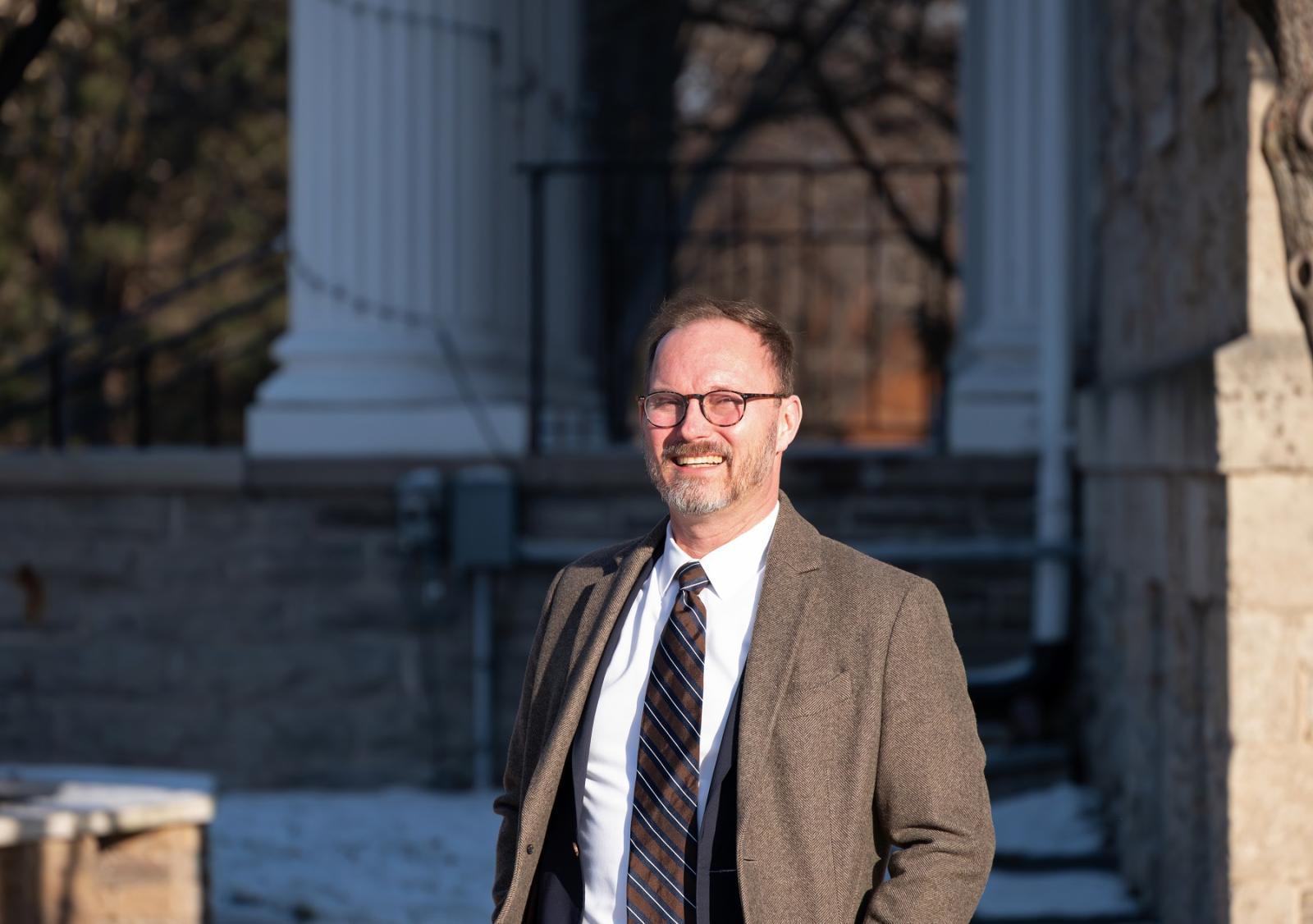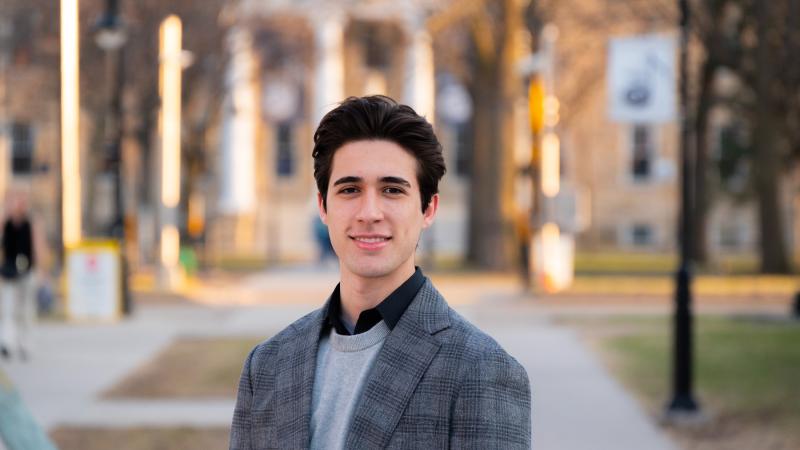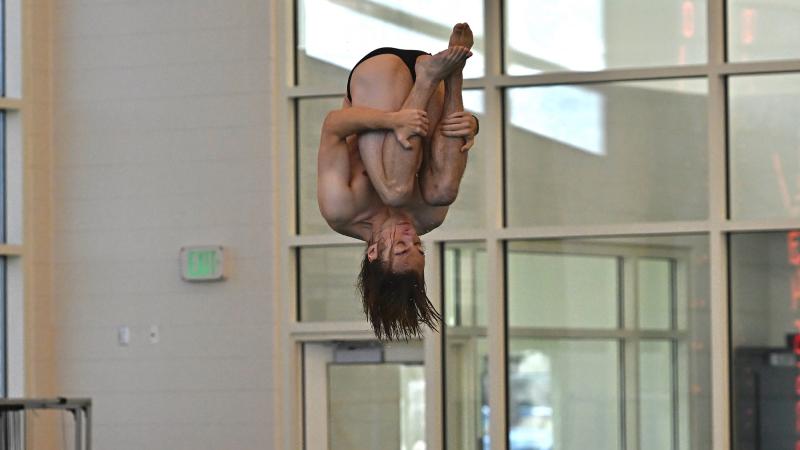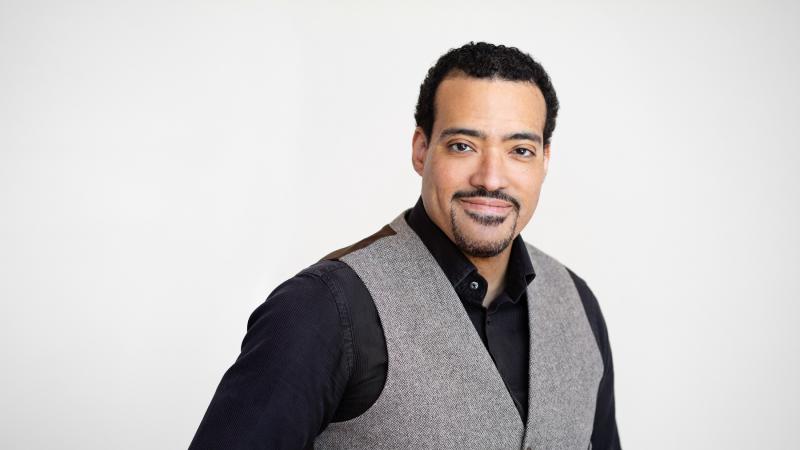About the series: On Main Hall Green With … is an opportunity to connect with faculty on things in and out of the classroom. We’re featuring a different Lawrence faculty member each time — same questions, different answers.
---
Garth Bond’s attention is frequently focused on the past. An associate professor of English at Lawrence University, his research and teaching are heavy on classic English literature—from Shakespeare and others of the Renaissance to 16th- and 17th-century British poets.
But Bond is squarely focused on the present when conversation turns to another of his passions—soccer. He is a devoted fan of professional leagues here and abroad and a frequent participant in pick-up games with students and colleagues on campus.
Learn from faculty whose interests are as varied as the books on your bookshelf. Develop skills in critical reading, writing, and analysis.
A member of the Lawrence faculty since 2005, Bond chairs the English department. He is a past director and frequent instructor in the First-Year Studies program, and has talked of the joy he finds in teaching First-Year Studies.
And, yes, he is the son of James Bond.
Bond received a Bachelor of Arts degree from Trinity University and a Ph.D. from the University of Chicago. He came to Lawrence after teaching in the Writing Program at Temple University.
We caught up with him to talk about interests in and out of the classroom.
In the classroom
Inside info: What’s one thing you want every student coming into your classes to know about you?
Because my classes focus on older literature, I would encourage students to think of them as a kind of study abroad opportunity. In part, that means looking for the identifiable moments that underline how much we share with those who lived in a very different time and place. But it also means puzzling over the alien parts and trying to understand the culture in which they made sense, ultimately with an eye to better understanding not only the past but ourselves as well.
Getting energized: What work have you done or will you be doing at Lawrence that gets you the most excited?
While I genuinely love everything I teach, I’m really happy to have introduced a History of the Book course. Working with our special collections in both the Mudd Library and Wriston is so much fun, and getting students to think about how changing technology reshapes human experience is the best.
Going places: Is there an example of somewhere your career has taken you (either a physical space or something more intellectual, emotional, or spiritual) that took you by surprise?
Teaching at the London Centre in Fall 2015 allowed me to attend West Ham United games during their final season at the Boleyn Ground. In addition to those home games, I was at their first win at Liverpool since the Beatles were topping the charts, and I saw Kevin De Bruyne’s first Premier League goal (happily, in a losing effort). Not quite in the classroom, but special nonetheless.
Out of the classroom
This or that: If you weren’t teaching for a living, what would you be doing?
If I wasn’t teaching for a living, I’d probably be starving. Possibly working as a music critic? My father was a law professor, and I think I would have enjoyed law school; but I’m less sure about practice.
Right at home: Whether for work, relaxation or reflection, what’s your favorite spot on campus?
I love teaching, but Sundays at the Banta Bowl, the field next to Alex, or in the Wellness Center Gym are probably my favorite campus spaces. Playing pick-up soccer with students, colleagues, and a handful of folks from the wider Appleton soccer community has been one of the best parts of my week for a decade-and-a-half now.
One book, one recording, one film: Name one of each that speaks to your soul? Or you would recommend to a friend? Or both?
Too many books, but I’ll mention one that Professor David Gerard in Economics introduced me to: Francis Spufford’s Red Plenty. It’s a brilliant work of historical fiction about the idea of the planned economy in Soviet Russia. (Also, Hilary Mantel’s Wolf Hall trilogy). Jason Moran’s Facing Left is the one contemporary jazz album that I have no doubt belongs on the shelf alongside the mid-century masters. In grad school, I started a project watching as many movies as I could from 1962, and my favorite—better than Lawrence of Arabia or The Manchurian Candidate or Cape Fear or even King Kong vs. Godzilla—is Otto Preminger’s Advise and Consent. Still the smartest American movie about politicians.




